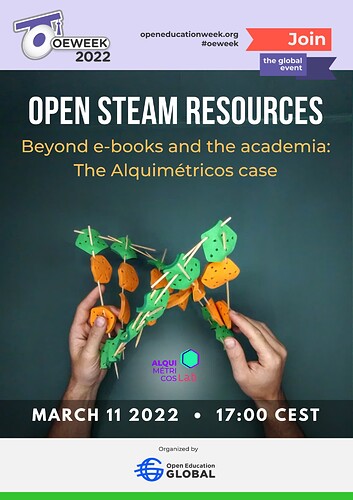Thanks for this Alex, you are triggering many thoughts that may end up as an incoherent response.
Maybe the old saying can be “those who forget open education history are doomed to not know about it.” I am one who likely knows of Librivox in limited passing, and just as likely there are many more projects, ideas, that are lingering unused in various corners of the warehouse. The internet archive likely has much more untouched content as reused.
One could just see this as potential (optimist?) than not.
Some of your discussion leans into those topics I find less interesting, “What is an OER?” as much of the focus seems to be on the assembled ones- the open courses assembled, the open textbooks. I frankly have always been more interested in the cleve uses of what it seems like you surface in Librivox, more like the raw material for potential educational use. A good teaching activity need not rely only on polished OER “designed as learning experiences”
So maybe it would help to see/hear examples of activities created around these archives (which you likely have).
The thing about audio as a media is that it is not quite readily “scanned” for interest / indexing as text. You have to either (a) be really familiar with the source material being read or have closely listened to a good amount of it (it is nice to see the openverse search expanding to audio, that likely requires metadata and transcription?).
Also, people are much less likely to “stumble” across these, right? One of my favorite discovery mechanisms is the browser extension that opens a new tab with a random image from the LIbrary of Congress PD collection. There is something to be about these seeding of curiosity while I wait for a window to open. I am not sure there is a place (or I want) that with audio. But it seems we are less likely to randomly bump into random audio than random images.
Does it matter that people cannot see/hear the potential, that their reaction is to define them away from OERs? I am fairly sure there is a grand amount of OER created outside the scope of the conferences, journals, limelight that is not seen either.
I’d see all this material as a vast sea of potential rather than worrying how well it is used or known. And keep mentioning it, things are truly dead when no one remembers them,
This also reminds me a few weeks go I got some kind email from the brilliant early web service LibraryThing informing me I was awarded a badge for being on the site for fifteen years. I am pretty sure it has been maybe 10 since I logged in! But it really was and still holds up as a forerunner for Goodreads et al.
Beyond the nostalgia, it just reminds me that good ideas might not stay popular but are still worthy. If remembered.
Thanks again for the reminder of Librivox- I don’t care if it’s in the OER “canon” but it’s a good reminder that there is potential there for something to make of all that PD content.

 )
)